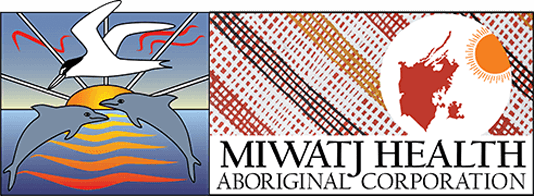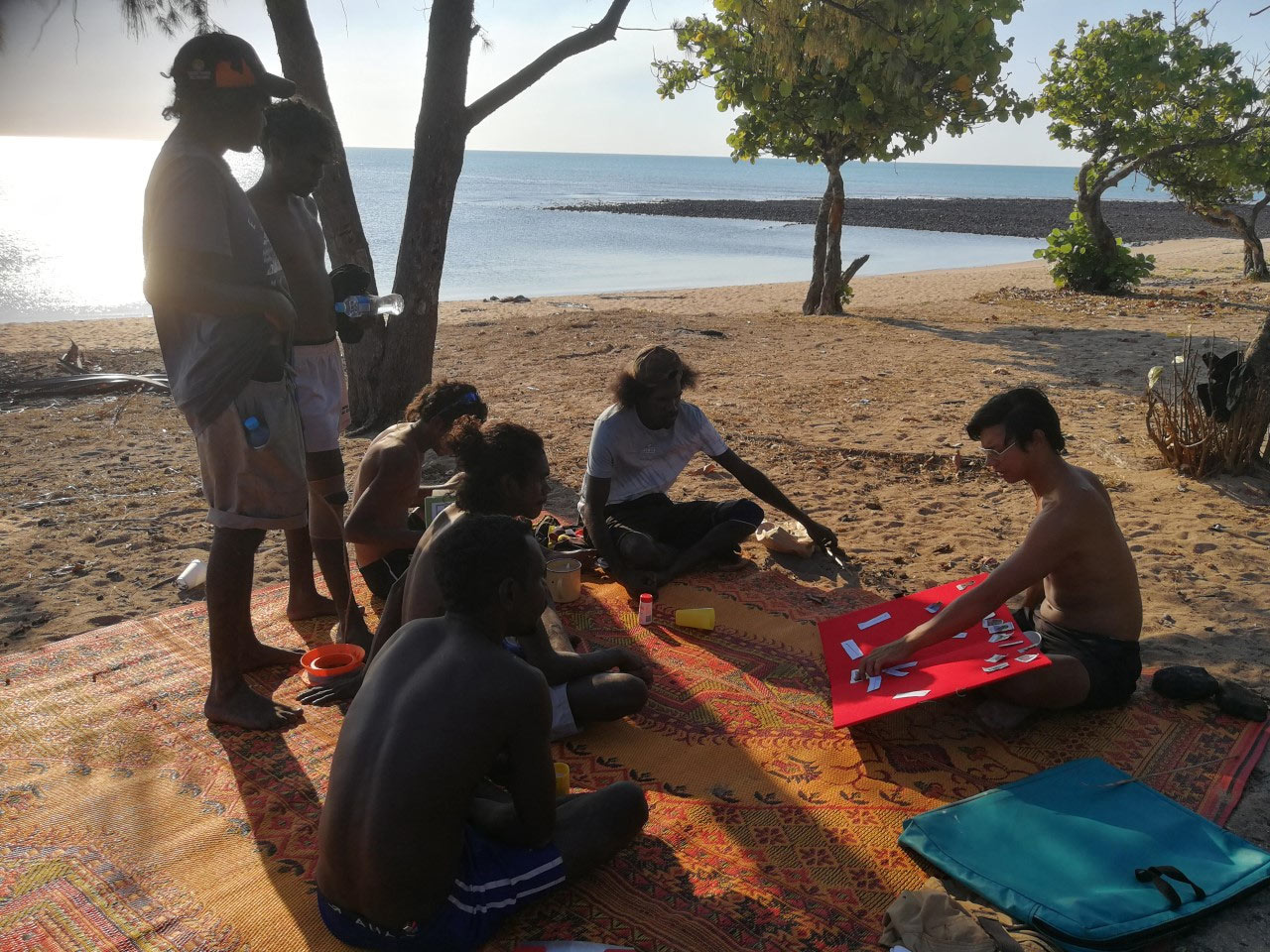The moon is shining brightly; a pearl globe suspended in a web of dazzling stars. It’s 8pm and Registered Nurse (RN) Frank Mante has just been given the keys to the clinic’s single ambulance land-trooper to start his nightshift. Tonight, Frank is the only on-call nurse on the remote island of Galiwin’ku in East Arnhem Land, Northern Territory. He has been informed that the landcruiser ambulance needs some unexpected attention; the back door is dented and it’s impossible to reach the stretcher. Frank’s problem-solving skills kick into gear. As the island sleeps, he traverses the dusty streets in search of tools, calling upon neighbours for a cross-slot screw-driver. “We don’t have safety-nets like the city does; there’s no NRMA out here. Here, you can’t plan for everythin, so the ability to get stuck in is vital. And your skills go through the roof as a result.” Quick-thinking and resourcefulness are among the many critical skills Frank has cultivated in just 18 months at Miwatj.
The path to Miwatj
Frank graduated from the University of Technology Sydney in 2009 and has been nursing for over 10 years. His most recent roles prior to joining Miwatj were as an Emergency Nurse in Liverpool Hospital and a Recovery Nurse at Sydney Children’s Hospital.
“I didn’t like the politics and competitive culture in the emergency department; it was like you needed to be ‘chosen’ to be taught a skill. I began to consider going remote when a colleague returning from Katherine told me about his experience. I caught up with him again, a year later after he came back from Milingimbi – one of the islands Miwatj serves. Talking to him about Miwatj inspired me to seize the opportunity to gain more skills, so I applied.”
Frank joined us as the Acute Care Nurse in March 2018, before becoming a Sexual Health Nurse at the end of last year. Today, Frank sees patients in the clinic just as often as out in the community, delivering education on sexual health and general wellbeing.
“A huge part of primary health care is education. In Indigenous communities, health literacy is incredibly low. By educating the community about how certain lifestyle choices impact health, you empower them and prevent future chronic disease. That’s one of my favourite parts of my role.”
Frank has also had the chance to run education programs within schools and on camps.
“As a primary healthcare nurse, much of what I do is building relationships with the community so people get to know me and feel comfortable getting checks. I recently went on a school camp to teach the teenage boys about sexual health through stories. We went spear-making; you have to use a branch from a milk-tree branch, turn it over the fire and chip away until you have a smooth surface to attach the spear-head. In the evening, we sat around the campfire, singing songs. It was an amazing experience. In the morning, I gave them a lesson on how STIs spread and general health after breakfast. A lot of what we teach are things that many people take for granted – like preventing STIs with condoms. But this level of education is critical to the health of remote communities.”
Since arriving on Galiwin’ku, Frank says the opportunity to upskill has been unprecedented.
“Working remotely, nurses at all levels must step up and perform procedures that would take years to learn in a city hospital. From plaster cast application and triage skills, to performing resuscitation with limited resources, the knowledge you gain from being in the trenches on a remote island is far superior to what you get from reading a textbook or observing in a hospital. Out here, you have skin in the game – you learn quickly because you experience all the challenges first hand.”
As incredible as his experience has been, Frank acknowledges that working remote isn’t for everyone, and it’s important to have an honest conversation with yourself before applying. Read on for three key questions Frank considered before switching the concrete jungle for red earth.
1) Do I enjoy my own company?
“Not all nurses are cut out for remote experiences. Nurses who enjoy their own time and don’t try to always source happiness from external sources will be content out here. If you are adventurous, then this may be for you.”
2) Do I have the technical ‘know how’ and can I handle pressure?
“Reflect on your nursing career and consider whether the difficult times you’ve had in nursing are enough to prepare you. Can you handle the pressure of dealing with a life-threatening emergency on your own with limited resources? This is the worst case scenario. Nurses who can handle high stress have an advantage here.”
3) Am I truly passionate about nursing?
“One thing that really keeps me going is being able to implement change. In a remote clinic, being one of five nurses means your ideas are taken seriously and changes to the healthcare process are implemented. In a hospital context, this is incredibly difficult. For example, one of my KPIs was to increase HIV testing in the region. I changed the process so we automatically tested for HIV whenever blood was ordered – and we increased testing significantly. If you’re passionate about nursing, it’s these moments that keep you going.”
Taking a moment to pause and reflect on his time at Miwatj Aboriginal Health, it’s clear that Frank feels that coming to Galiwin’ku was one of the best decisions he’s ever made.

